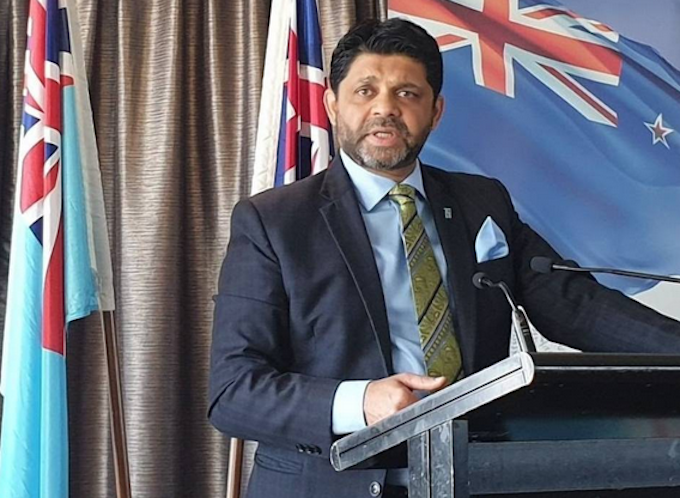
COMMENTARY: By Graham Davis in Sydney
The man with his hands on the tiller of the Fijian economy, Aiyaz Sayed-Khaiyum, has always been a great admirer of Gough Whitlam’s “crash through or crash” approach to leadership and never more so than with the F$3.67 billion budget he announced on Friday night.
Allowing for a sobering 21.7 percent contraction of the economy, the budget provides for a $2 billion deficit and takes government debt to $8.2 billion, a debt-to-GDP ratio of 83.4 percent compared to the 53 percent the government inherited when it took office in 2006.
With the collapse of the celebrated “Bainimarama Boom” that the Attorney-General trumpeted just a year ago, he is using foreign loans for a massive stimulus effort to try to dig Fiji out of the covid crisis, including tax cuts and the abolition or reduction of a raft of government charges.
READ MORE: Fiji announces $3.67bn budget
Whether the private sector and the rest of the community responds remains to be seen.
But it amounts to a massive gamble because any overall recovery is specifically predicated on the resuscitation of Fiji’s biggest revenue earner – tourism – through a Pacific Bula Bubble with Australia and New Zealand.
We know the Attorney-General is betting everything on the Bubble happening this year because the Reserve Bank is predicting a post-covid revival of 14.1 percent economic growth next year specifically on the assumption that visitors will return in numbers before then.
The unspoken aspect of the debate around the budget is the fate of the national carrier, Fiji Airways, that has been given half a billion dollars worth of government loan guarantees to keep it afloat and is also banking on being back in the air by the end of the year.
Saving the Fijian economy
Will there be sufficient bums on aircraft seats and bodies in hotel beds by Christmas to save the Fijian economy and its national airline?
The country lives in hope but with the covid pandemic raging in the two most populous Australian states and the NZ government reluctant to institute its own bubble, the average Fijian wouldn’t want to bet their bure on it.
An estimated 115,000 people have already lost their jobs in the private sector but foreign loans are so far keeping the country’s 27,000 civil servants at work, with pay cuts at the top of government but no job losses in the public sector.
Civil servants are now the backbone of the general economy, with everyone else relying on them to “spend, spend, spend”, though with money that Fiji doesn’t have and loans that will have to be repaid.
Crash through or crash it is.
Graham Davis spent six years as the Fijian government’s principal communications adviser from 2012 to 2018. He also worked on Fiji’s global climate and oceans campaign, including its presidency of COP23.














































